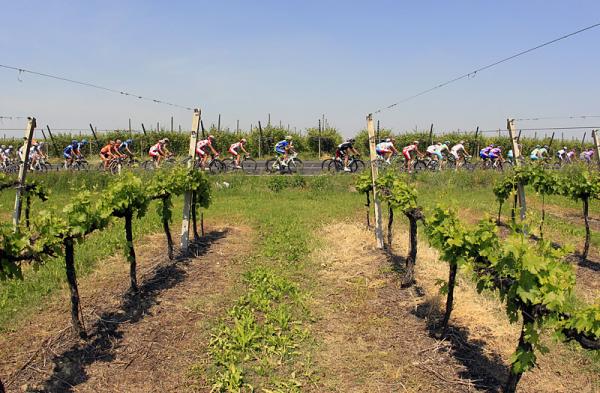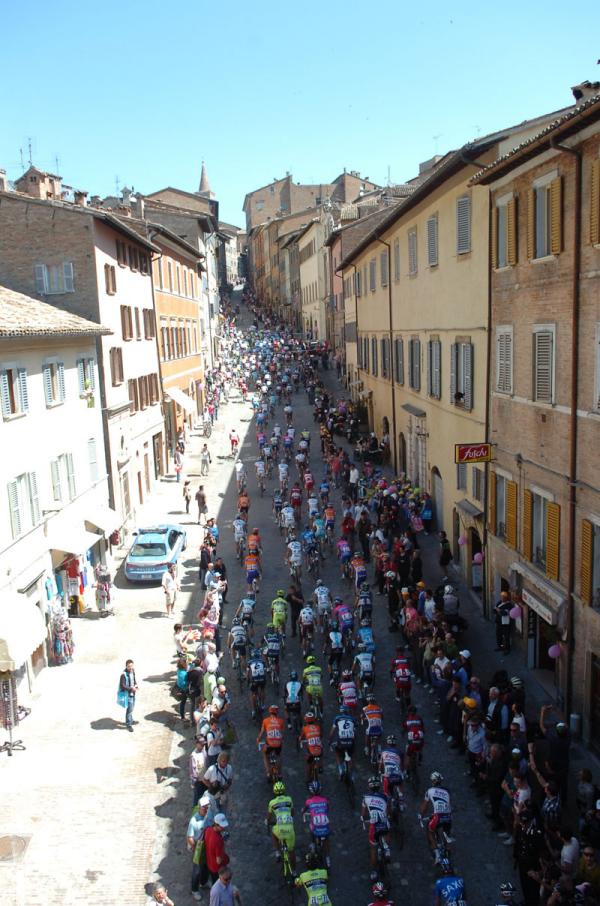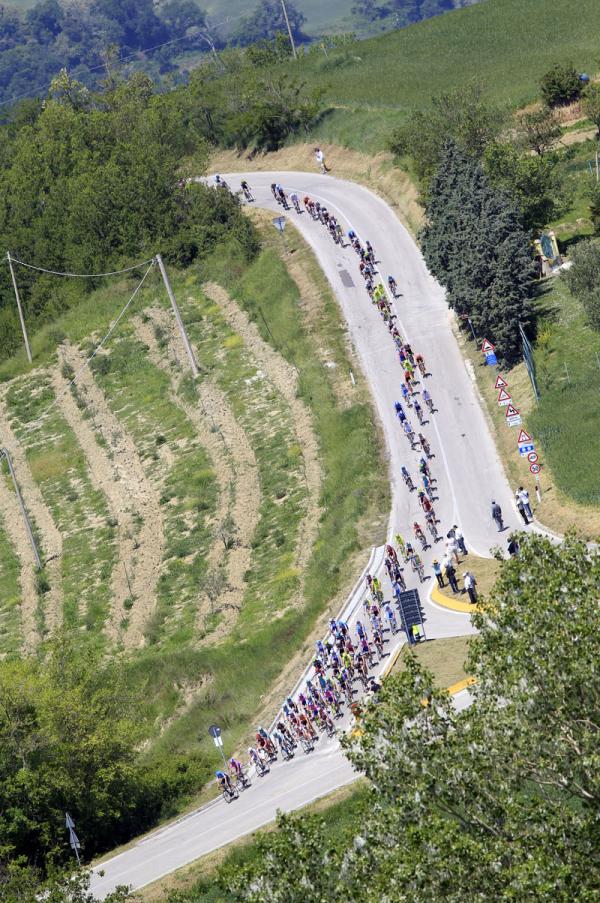Weather changes set to take toll on Giro d'Italia riders
Cooler, showery weather as race starts to head north



The Giro d’Italia starts its long trek north through Italy today (Monday) with a radical change not just in the terrain - from constantly undulating and mountain terrain to flat - but also in terms of the weather.
When the peloton looked out their hotel windows just outside Naples this morning they saw they could look forward to a mix of heavy rain showers, low cloud, a drop of about ten degrees and blustery winds for this afternoon’s stage. Lovely.
What effect does this have on the riders? Psychologically, it’s not a crowd pleaser in anyone’s book, even if it is a shorter, and far flatter stage today - 166kms as opposed to 229 kilometres for Saturday and 210 kilometres for Friday.
“The change from hot weather to cold is never ideal for morale and can make riders perceive stages as being longer and harder. Also the bike handles differently too in these different conditions, so that’s another change,” Garmin-Barracuda physical therapies co-ordinator and chiropractor Matt Rabin told Cyclingnews.
“Physically as well, muscles tend to get tighter, quicker, and you can become more prone to aches and pains in the colder weather.”
“If it’s 30 degrees or more, you get warmed up straightaway when you start riding. But in the cold it can take that little bit longer.”
With natural defenses dropping steadily as the race continues, although it’s important to eat well in the colder weather, “riders will start to want to eat less, it’s a natural reaction as the accumulated stress and fatigue of eight to ten days hard racing start to kick in, so we have to watch how much they’re eating.
The latest race content, interviews, features, reviews and expert buying guides, direct to your inbox!
“We have a chef” - not always the case even for WorldTour teams - “and he’ll keep on varying the food as much as he can to try and ensure the menus are different and more appetising like that. If a rider is off his food, then he can try to direct him back with new flavours and tastes.
“Fortunately, breakfast and dinner are two enjoyable events on stage races, it’s when everybody gets together in a team,” Rabin said. This means riders tend to want to spend time at the meal table - and hence, hopefully, get more food down them.
Team staff will also watch closely this week for any signs of developing ailments. The second half of a race is when the immune system is getting very vulnerable, so at the first sign of a cough or cold, riders will be isolated as much as possible, and sleep alone rather than sharing a hotel room with a teammate as they usually do.
“That is the doctor’s job, but we all keep an eye open. It’s a question of making sure poeple know. The chiropractor will speak to the doctor, the doctor to the other team members of staff and the riders and so on and so on. Communication at times like these is really important.”
“With the bad weather, we’ll be even more attentive, because that increases the likelihood of illness. Fortunately, though, it is relatively flat and short. If the weather is like this on Thursday when they’ve got 255 kilometres to get through, it’ll be very different.”
“The last few days have been very tricky but it should be a bit less stressful today, in general.”
“For the Giro d’Italia, this is basically as good as it gets.” And given that the first rest day, usually on a grand tour’s second Monday or Tuesday, is ‘missing’ because it was used to make the transfer from Denmark to Italy, that’s especially the case in this year’s race.
Alasdair Fotheringham has been reporting on cycling since 1991. He has covered every Tour de France since 1992 bar one, as well as numerous other bike races of all shapes and sizes, ranging from the Olympic Games in 2008 to the now sadly defunct Subida a Urkiola hill climb in Spain. As well as working for Cyclingnews, he has also written for The Independent, The Guardian, ProCycling, The Express and Reuters.
